

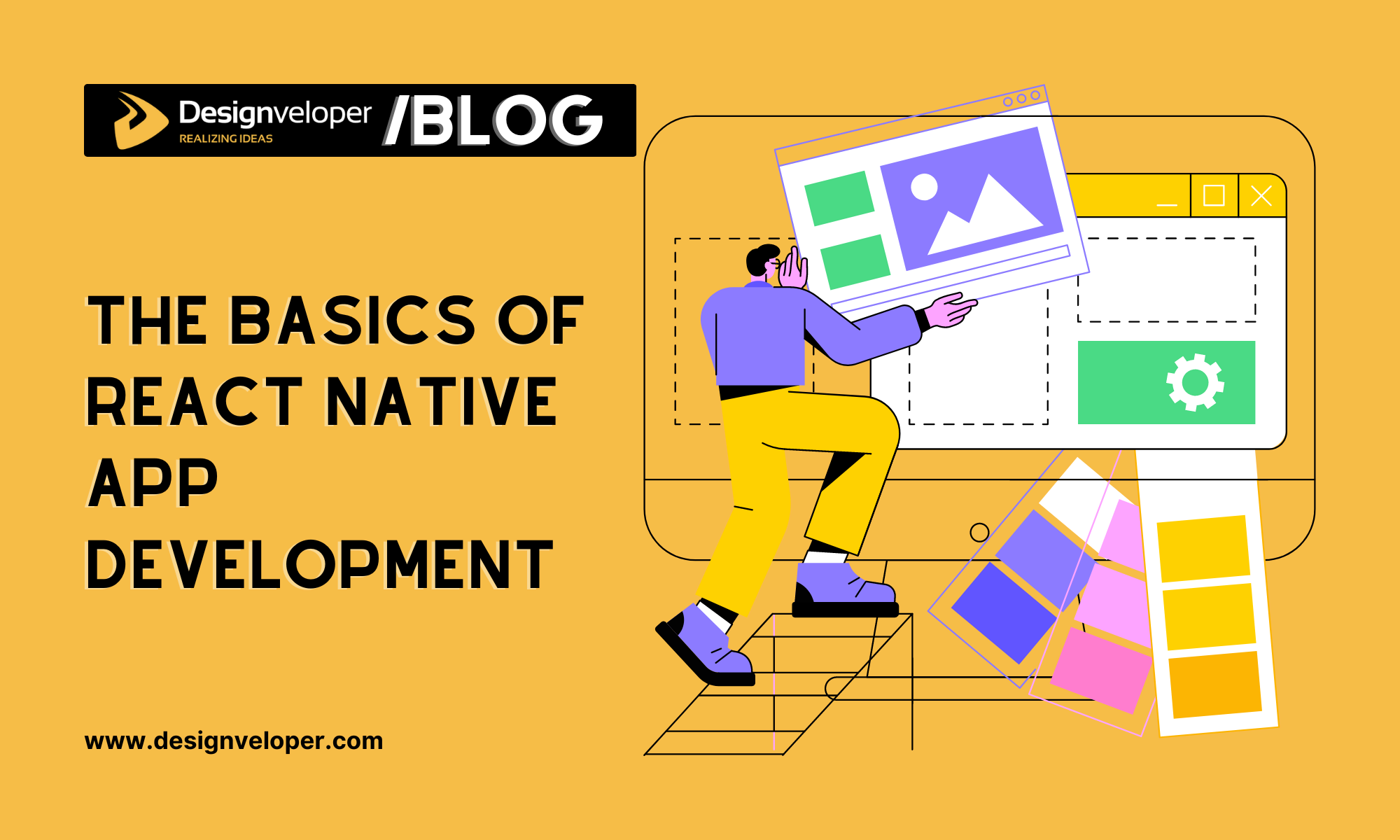
Are you ready to embark on an exciting journey into the realm of React Native app development in 2025? This comprehensive guide will provide you with all the necessary information to set up your react native app development environment effortlessly. Brace yourself as we delve into a world where coding becomes effortless and your app aspirations turn into reality. Let us begin this adventure together!
Understanding React Native app development is like possessing a superpower for developing mobile applications. This magical framework additionally empowers you to effortlessly create cross-platform apps using a single codebase, eliminating the need for duplicating efforts between iOS and Android platforms. It’s time to embrace efficiency and productivity as we delve into the core concepts of React Native in this first section. Additionally, by equipping yourself with these principles, you’ll be well-prepared to craft exceptional apps with professional finesse. So, prepare your coding cape, for together we shall unravel the mysteries of React Native!
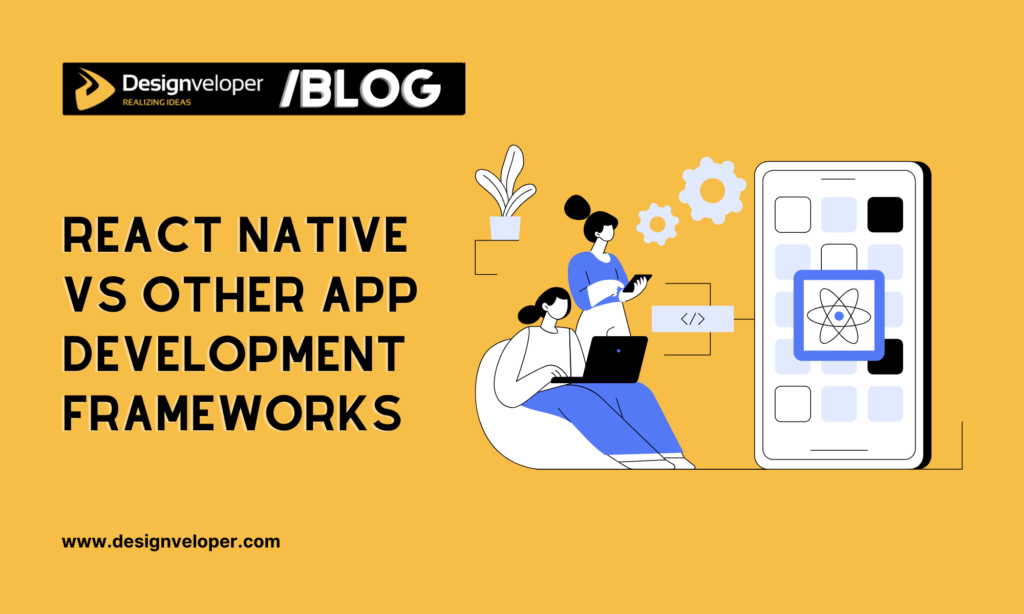
Let’s break it down! React Native revolutionizes app development by providing a universal translator for code. In addition, with this revolutionary technology, developers write once and run their code seamlessly on iOS and Android platforms. So, isn’t that fascinating?
React Native, unlike traditional app development frameworks, eliminates the need for separate apps on each platform. Instead, it utilizes a single JavaScript codebase to effortlessly create native components for both iOS and Android. This advantageous approach also saves significant time, effort, and resources by avoiding the burden of maintaining two distinct codebases.
React Native’s awesomeness also stems from its remarkable ability to translate code into native components. By seamlessly communicating with the platform’s native APIs, it also ensures that your app maintains the authentic look and feel of a native application while delivering exceptional performance—no compromises necessary.
Moreover, React Native brings another advantage. Users can also employ a familiar development approach, especially if they already have experience with React. This also makes the transition exceptionally smooth and effortless. Additionally, developers can take advantage of their existing React skills and knowledge, which proves to be a significant asset.
Lastly, don’t forget the thriving community. Specifically, React Native boasts a vast network of devoted developers who actively contribute to its growth. Within this community, additionally, you will discover an abundance of open-source libraries and packages that can significantly enhance your development process.
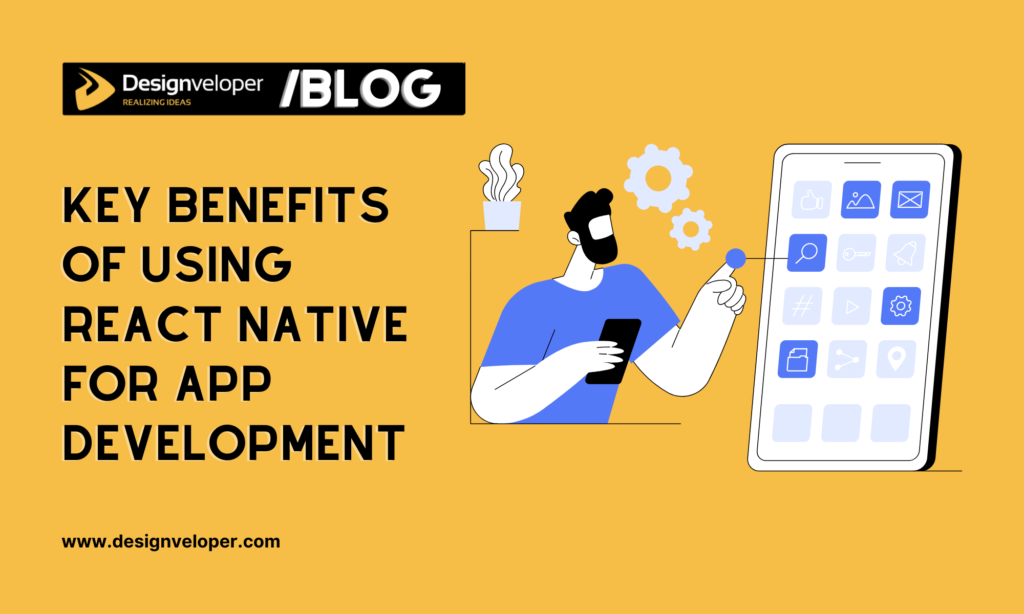
React Native offers amazing advantages! It’s truly a game-changer. 8.5% of developers are using this hybrid mobile app framework, as of 2025, for several crucial benefits it brings to them.
React Native enables the creation of apps that seamlessly operate across both iOS and Android platforms. Even more, separate teams or codebases are not required. A single codebase reigns supreme!
Experience the power of efficiency as redundancy becomes a thing of the past! Furthermore, with code reusability, you write your code just once and effortlessly apply it across multiple platforms.
Users crave snappy apps, and with React Native, their desires are fulfilled. Additionally, this framework also effortlessly creates native components that ensure your app feels as smooth as silk on every platform.
Imagine the convenience of seeing your changes instantly without any delay. With hot reloading, indeed, this magic becomes a reality as there’s no more waiting for recompilation.
The React Native ecosystem awaits. Indeed, it’s like stumbling upon a treasure trove of ready-to-use libraries and packages, just waiting for you to tap into their power. Additionally, with this goldmine at your fingertips, you can turbocharge your development process.
If one has knowledge of React, they are also already halfway there! Indeed, React Native utilizes the same syntax, making it effortless for React developers to jump right in.
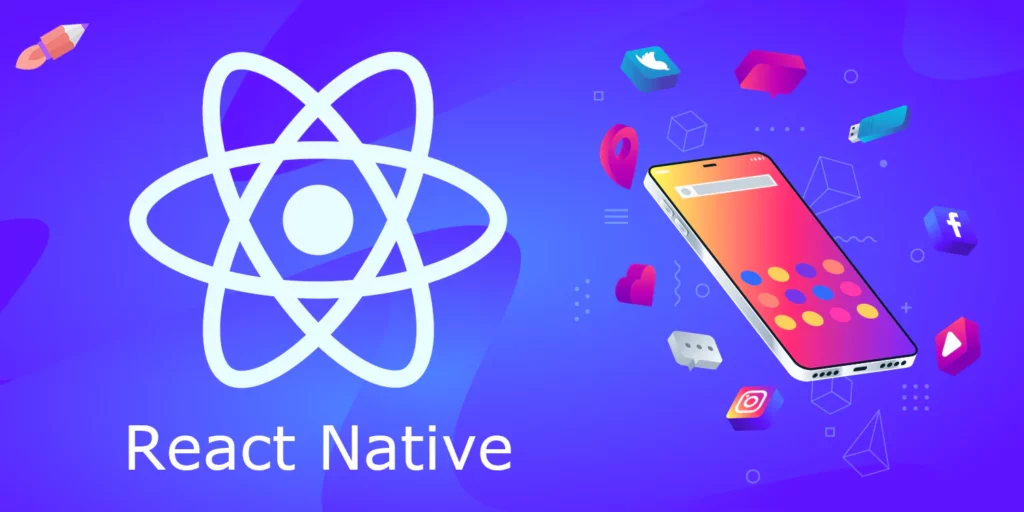
Rest assured, you are not alone on this journey. Indeed, the React Native community is vast and brimming with vibrant energy. Within its embrace, seek assistance, exchange knowledge, and flourish together.
You can save both time and resources by maintaining a single codebase for both platforms. This also brings a win for your budget and helps preserve your sanity.
React Native effortlessly also keeps up with the ever-changing times, consistently enhancing and incorporating new features. So, rest assured that you will always remain relevant and ahead of the curve.
And there it is! React Native surpasses being just a framework; it truly revolutionizes the world of app development. Prepare to transform your workflow and captivate your users with visually stunning, high-performing applications. Embrace the React Native wave towards triumph!
There are some remarkable applications making waves in the React Native app development world. Explore a selection of successful real-world apps that demonstrate the impressive capabilities of React Native in 2025.
Most notably, React Native has conquered the Meta (formerly Facebook) and Microsoft universes. Meta also uses it in products like Facebook Marketplace, Messenger Desktop, and Oculus companion app. Similarly, Microsoft relies on React Native to provide users with seamless experiences through apps like Microsoft Office, Outlook, Teams, Xbox Game Pass, and Skype. Furthermore, even Shopify—the e-commerce giant—has wholeheartedly embraced React Native for all their new mobile applications and is actively transitioning their flagship merchant admin app Shopify Mobile to this powerful framework.
Recommended reading: Top 5 React Native App Development Companies in the USA
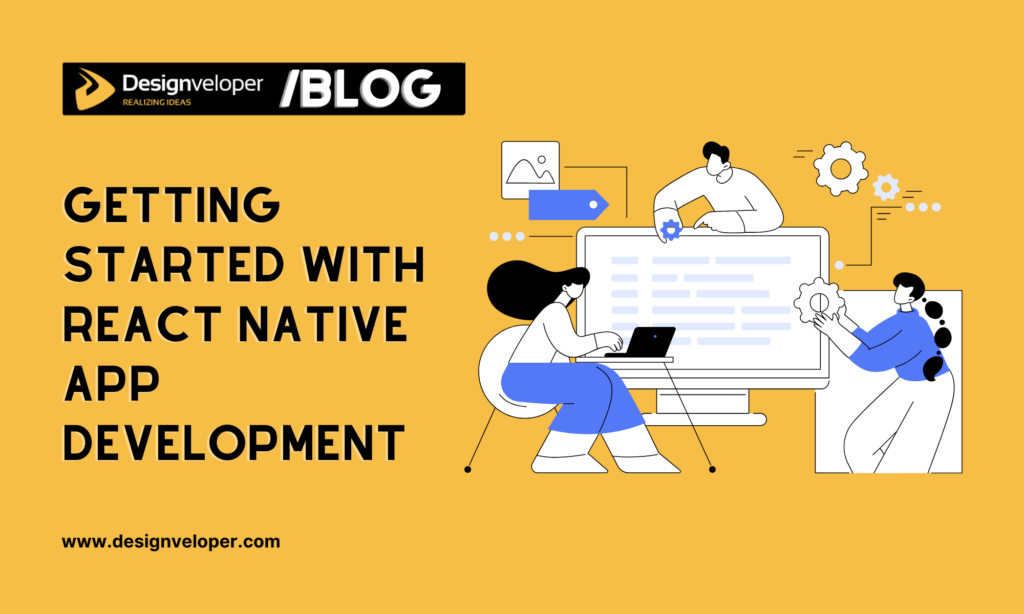
Attention, ladies and gentlemen! It’s time to delve into the captivating realm of React Native app development. So prepare yourselves for an exhilarating journey as we guide you seamlessly through the process, from setting up your development environment to crafting your very first React Native project. Rest assured, even if you’re new to this, we’ve got you covered with easy-to-follow steps that leave no room for confusion. So, let’s get started on this remarkable expedition together! Brace yourselves to conquer the React Native world in 2025!
Now, let us proceed to set up the development environment before delving into the magnificent realm of React Native. Rest assured, it’s a straightforward process! The following steps will guide you through it:
Node.js is the heart of React Native development. Head over to the Node.js website, and download the latest version. Once the download is complete, run the installer, and you’re good to go!
npm is your best buddy when it comes to managing packages and dependencies for your React Native projects. In addition, it comes bundled with Node.js, so you don’t have to install it separately.
Time to unleash the power of the React Native Command Line Interface (CLI). More specifically, to install it, open your terminal or command prompt, and type in the magical command: npm install -g react-native-cli. Hit Enter, and the CLI will be installed globally on your system.
Furthermore, if you plan to develop for Android, you’ll need to install Android Studio. And if you’re targeting iOS, grab Xcode from the Mac App Store. These tools come with emulators, which are like virtual devices that help you test your apps.
To run the React Native commands smoothly, you need to set up some environment variables. But don’t fret; there are clear instructions on the React Native documentation to guide you through the process.
Alright, time to put our setup to the test! Open your terminal or command prompt again and run the command react-native info. Also, if all goes well, you should see an avalanche of useful information about your React Native environment.
That’s it! The React Native app development environment is now successfully set up. You’re all prepared to embark on an exciting journey of creating your first astonishing React Native project. So, take a moment to acknowledge your efforts and get ready, because the coding adventure is about to commence! Brace yourself to leave a remarkable impact on the app world in 2025 with the power of React Native.
Embarking on a new React Native project mirrors the beginning of an exhilarating expedition. So fasten your seatbelt and let us dive into these straightforward steps:
Open your terminal or command prompt, and type react-native init MyAwesomeApp. Replace “MyAwesomeApp” with your app’s name. Hit Enter, and voilà! With that, React Native will work its magic, setting up a new project just for you.
Additionally, let’s take a peek into your project’s structure. You’ll find various folders and files, but don’t worry; it’s all well-organized and straightforward. The essential folders include:
Contains everything related to your Android app.
Holds everything for your iOS app.
This is where all the dependencies live. Magic code stuff!
Your source code lives here. This is where you’ll be working your coding wizardry.
Your app’s entry point is in the index.js file inside the src folder. It’s like the gateway to your app’s wonderland.
Let’s get your app to greet the world! Open the App.js file in the src folder. Afterwards, change the text inside the <Text> component to “Hello, World!” Save it, and behold the magic!
Alright, time to see your app in action! In the terminal, type react-native run-android for Android or react-native run-ios for iOS. Your app will appear on the emulator or device. Ta-da!
Congratulations, you’ve just created your first React Native app! Now go ahead and do the happy dance, because you’ve taken your first step into the exciting world of React Native app development!
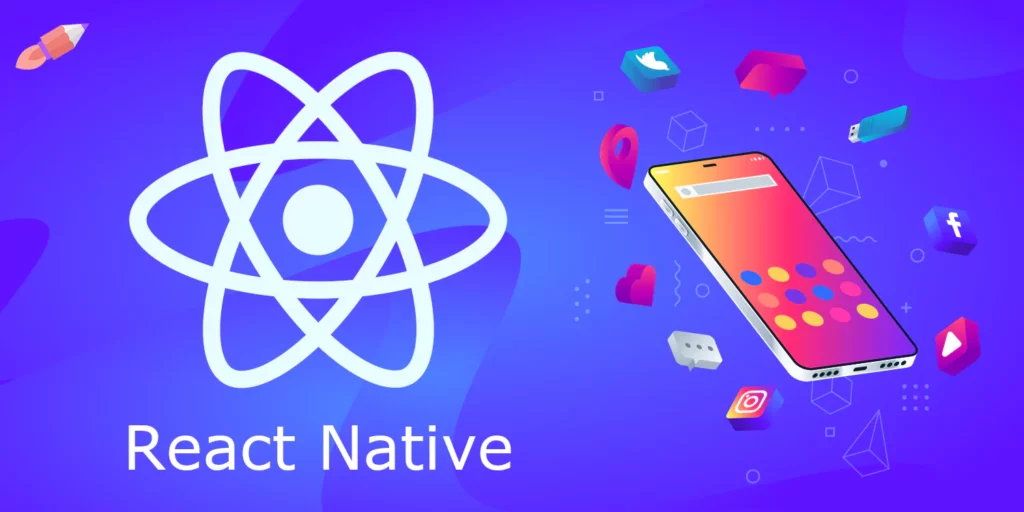
And with that, the React Native app development project has been successfully set up, giving you a taste of what lies ahead. It’s time to unleash your creativity and embark on building remarkable apps not just in 2025 but for years to come. So keep exploring, keep learning, and let the exciting journey with React Native app development continue! Happy coding!
With your React Native app fully set up and ready to go, it’s time to witness its magic in action! To do so, you’ll need to run the app on simulators, emulators, or even real devices. Exciting possibilities await. Let’s take the plunge and explore!
Simulators and emulators are like virtual playgrounds for your app. Specifically, they mimic the behavior of real devices on your computer. They are also perfect for testing and debugging without the need for actual devices.
If you’re on a Mac, you’re in luck! Open up Xcode, and go to “Open Developer Tool” to find “Simulator.” Choose a device and boot it up. Then, fire up your terminal and type npx react-native run-ios. Watch the magic happen!
For Android lovers, Android Studio is your go-to. Open it up, click “AVD Manager,” and create a virtual device. Select it and click “Play” to start the emulator. Now, in your terminal, type npx react-native run-android. Boom! Your app is on the virtual stage.
Virtual is great, but there’s nothing like the real deal! To run your app on a physical device, first, connect it to your computer. Additionally, you should also make sure USB debugging is enabled in the device settings.
Once your device is connected, open your terminal and type the same npx react-native run-ios for iOS or npx react-native run-android for Android. Your app will also find its way to the connected device easily, and you can feel the touch of reality!
Now, here’s a cool trick. Shake your device while your React Native app is running, and you’ll unveil a secret menu! This is your developer menu, packed with handy options like Reloading the app, Enabling Hot Reloading, and even Debugging. Super helpful!
When you’re done testing and polishing your app, it’s time for the big show – releasing it to the world! To do this, you need to build your app in release mode, optimizing it for performance.
For iOS, open Xcode again and go to “Product.” Choose “Scheme” and then “Edit Scheme.” Change the Build Configuration to “Release,” and hit “Close.” Now, run npx react-native run-ios –configuration=release in your terminal. Bravo, you’ve got a release-ready app!
Android’s turn! In your terminal, type cd android && ./gradlew assembleRelease. Wait for the build to finish, then find your APK file at android/app/build/outputs/apk/release/app-release.apk. Now you’re ready to take on the world!
If you’ve arrived at this point, you will acquire the knowledge of successfully running a React Native app on simulators, emulators, and real devices. It’s time to unlock one ‘s creativity and dominate the realm of app development!
FURTHER READING: |
1. A Bird-Eye View of React vs React Native: Key Points |
2. Flutter vs React Native: Which One is Better for Business? |
3. Top 10 Best React Native Courses For Beginners |
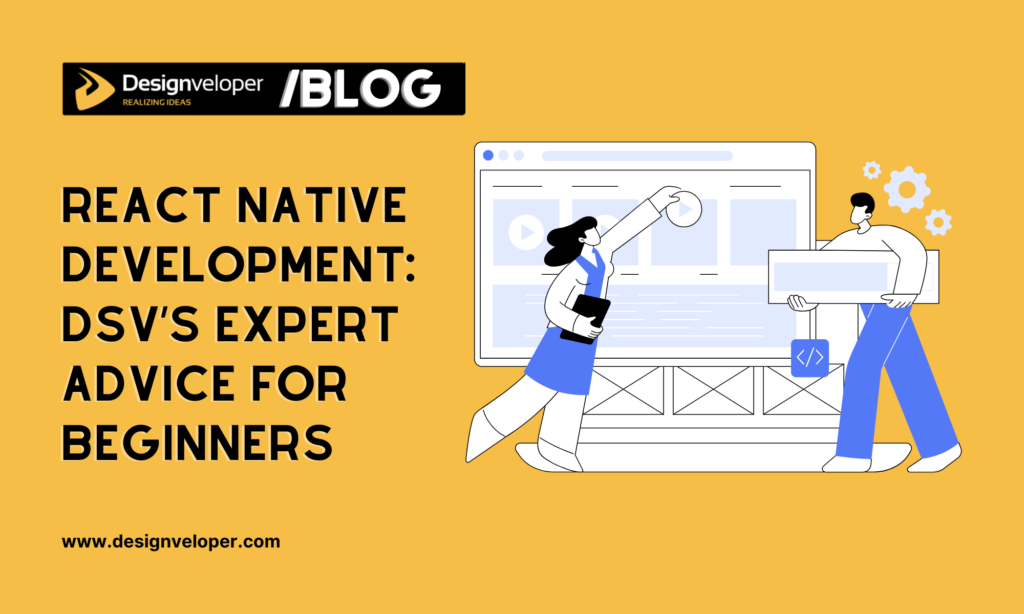
If you’re new in React Native development, here’s some sound advice from Designveloper’s experienced developers to help you master this programming language:
These skills, along with patience and regular practice, will help you become a successful React Native developer. Remember that learning is always a continuous process, and constantly updating your knowledge is the key to personal growth.
Now, armed with all the basic tools, you are fully prepared to embark on your React Native app development journey in 2025. The future holds thrilling prospects and endless possibilities await! Whether you are an experienced developer or just starting your coding journey, React Native warmly embraces everyone. Its thriving community continues to grow, providing unwavering support throughout your development expedition so that you never feel adrift.





